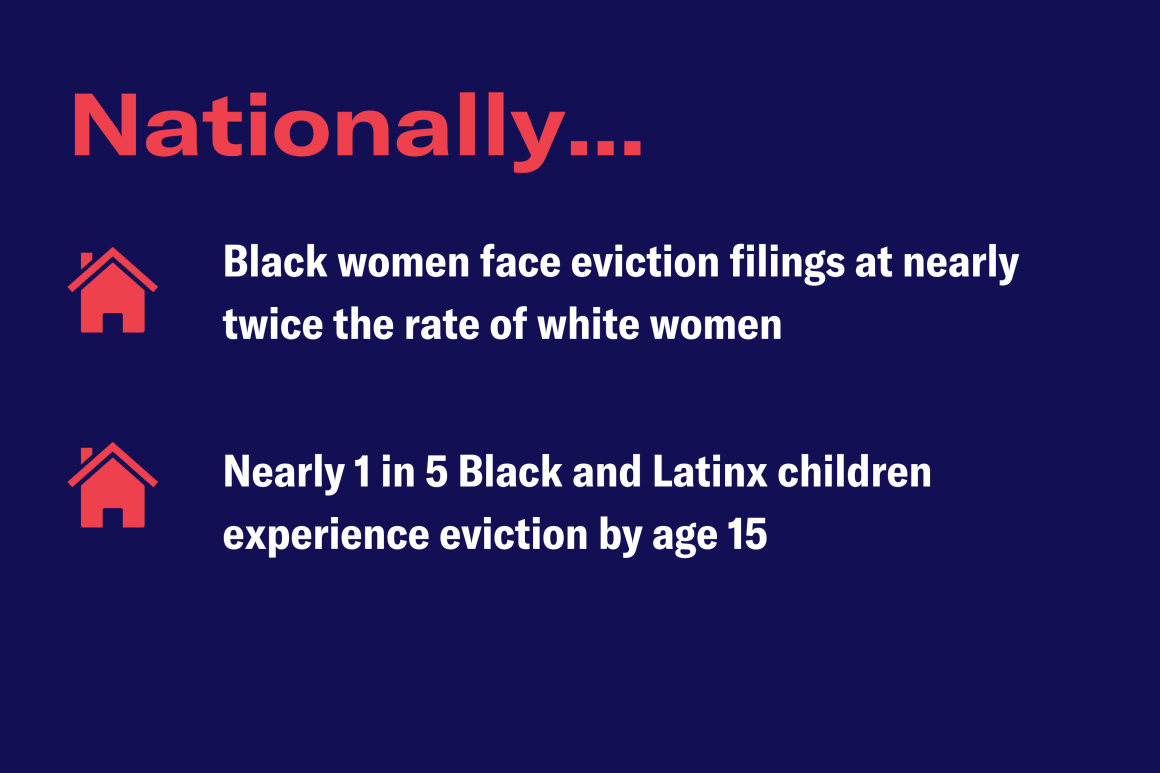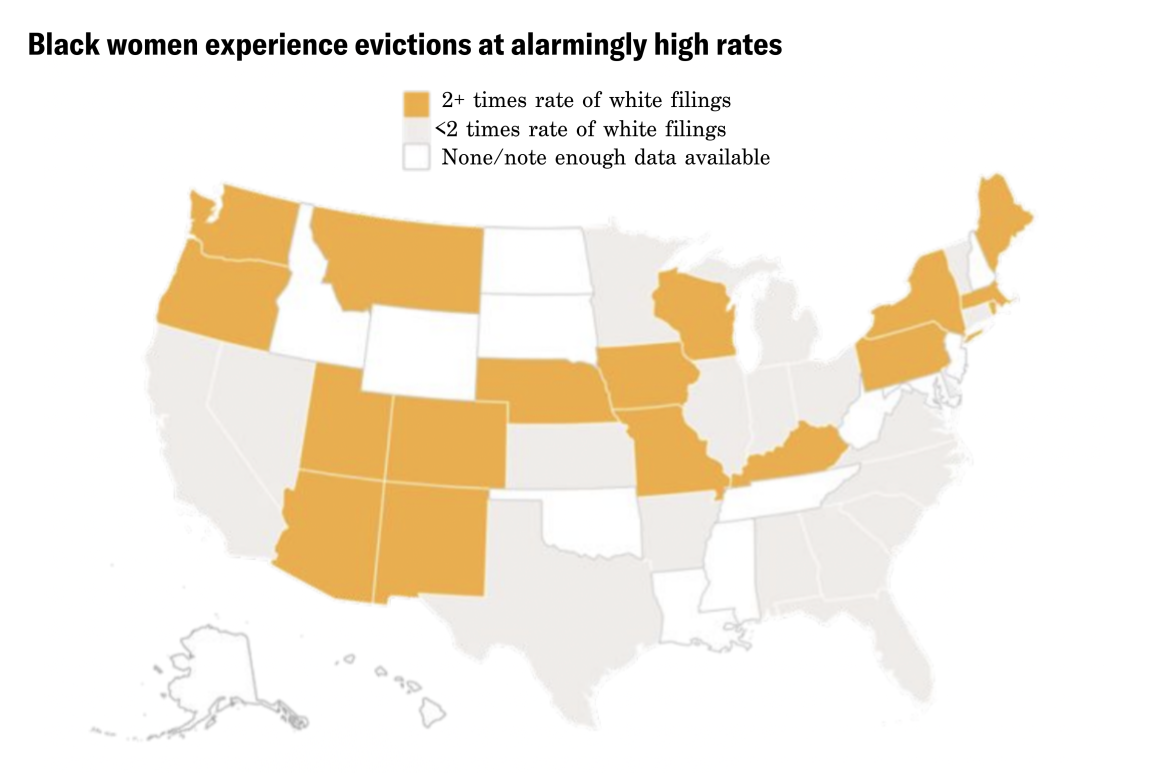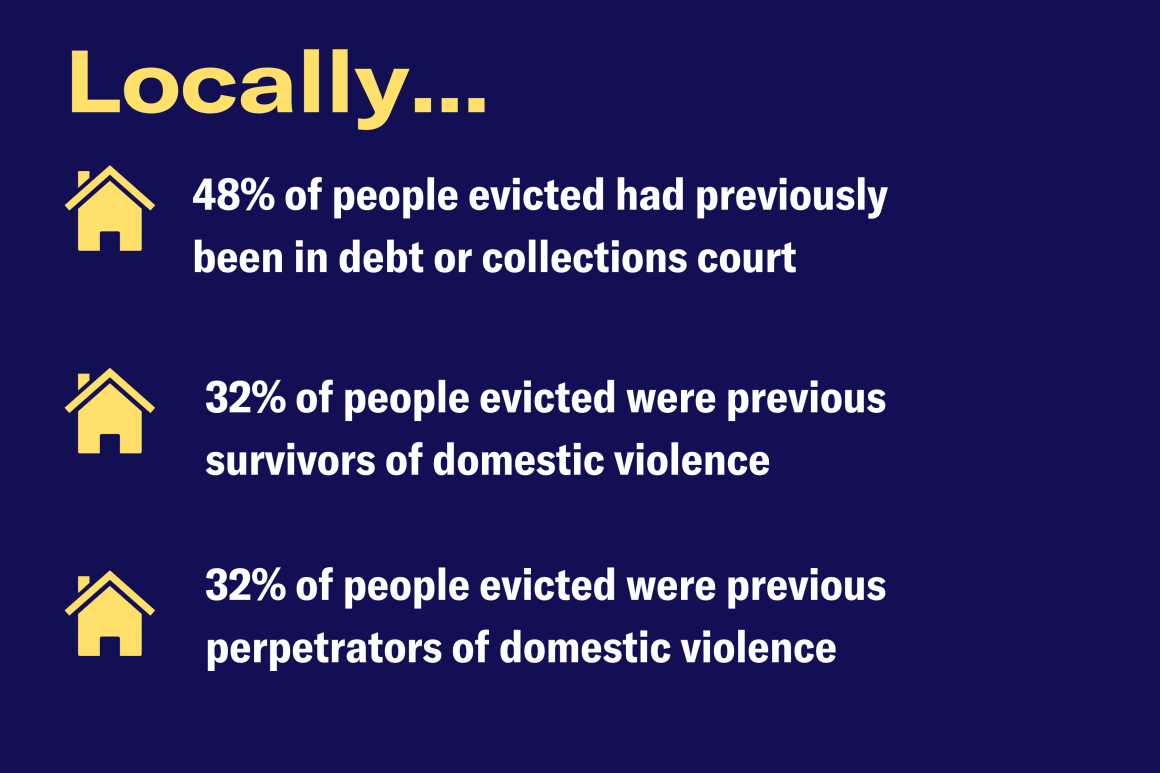We believe that equal access to housing is a civil right, but the persistence of systemic barriers continues to push safe and stable housing out of reach for many Nebraskans. Housing justice means protecting those who experience systemic racism, gender-based violence, and discriminatory treatment or impact as barriers to have a safe and stable place to call home. The ACLU of Nebraska is committed to ending barriers to fair housing and ensuring fair housing opportunities for all Nebraskans, but particularly women, especially low-income women of color who are disproportionately harmed by housing inequity.
Evictions: A racial justice, economic justice, gender justice, reproductive justice, and disability rights issue.
Not only are people with low-incomes more likely to be evicted, but evictions also serve to prevent economic opportunities. Having an eviction on someone’s record makes it more difficult to find housing in the future, it leads to job loss and a slew of economic consequences, not to mention other consequences impacting things like educational opportunities and physical and mental health.

In addition to being an issue of economic justice, evictions are an issue of gender and reproductive justice. Reproductive justice, the human right to maintain personal bodily autonomy, is greatly compromised when one’s housing and economic situation is unstable, unsafe, or fair housing is simply out of reach.
Women, particularly Black and Latinx women, are disproportionately affected by evictions. In fact, Black women face eviction filings at nearly twice the rate of white women. Across the country, Black women renters had evictions filed against them at nearly double the rate of white renters or higher in 17 of 36 states including in Nebraska.

Domestic Violence and Housing Justice Policies in Nebraska
It is critical that lawmakers and leaders understand that traumatic events such as evictions can negatively influence someone’s life outcomes in both the short and long term. In contrast, laws and policies that help reduce systemic barriers to a stable home can improve the social, physical and mental health of Nebraskans. Residential instability including evictions can exacerbate domestic violence issues and domestic violence can lead to residential instability. The laws that we make can either support survivors or punish them.

Currently, Nebraska has some housing protections, including recent legislation like LB 320 (2021, Sen. John Cavanaugh) that expands housing protections for domestic violence survivors.
This is an opportunity to take a step forward on racial justice and gender equity. Although people of all races, genders, and sexual orientations can experience domestic violence, it has a disproportionate effect on communities of color and we know that women and girls experience domestic violence and sexual assault at alarmingly high rates. Additionally, LGBTQIA+ people experience domestic violence at similar rates as the general population, but face added barriers to accessing support.
A Step Towards Housing Justice
Since the start of the COVID-19 pandemic, rent prices across the country continue to surge. Amid a nationwide housing crisis, we are also facing a historic eviction crisis. While the cards might be stacked against Nebraska tenants who are struggling to keep pace with the rising cost of living, there is hope on the horizon. Towards the end of 2022, alongside our partners at the Iowa-Nebraska NAACP, we submitted a joint amicus curiae or "friend of the court" brief to the Nebraska Supreme Court in NP Dodge vs. Holcomb.
The brief sides with the appellant in the case, arguing that the Nebraska Constitution provides for the right to a jury trial in eviction proceedings. It also outlines policy reasons why jury trials in eviction actions are important given the current eviction crisis, the collateral consequences of evictions and the disproportionate effects of evictions on Nebraskans of color, those with disabilities and women with minor children.
We know that housing is so much more than just the walls that make up our house or apartment. Housing is about security, safety and economic opportunity. We will continue to fight for the rights of all Nebraskans who are in search of secure and safe housing in the courts and in the legislature because equal access to safe housing is a civil right.
Know Your Resources
In Nebraska, there are laws, policies, and organizations that can help tenants who are facing eviction and have experienced domestic violence. Attorneys representing these clients in Lancaster County are encouraged to review this resource.